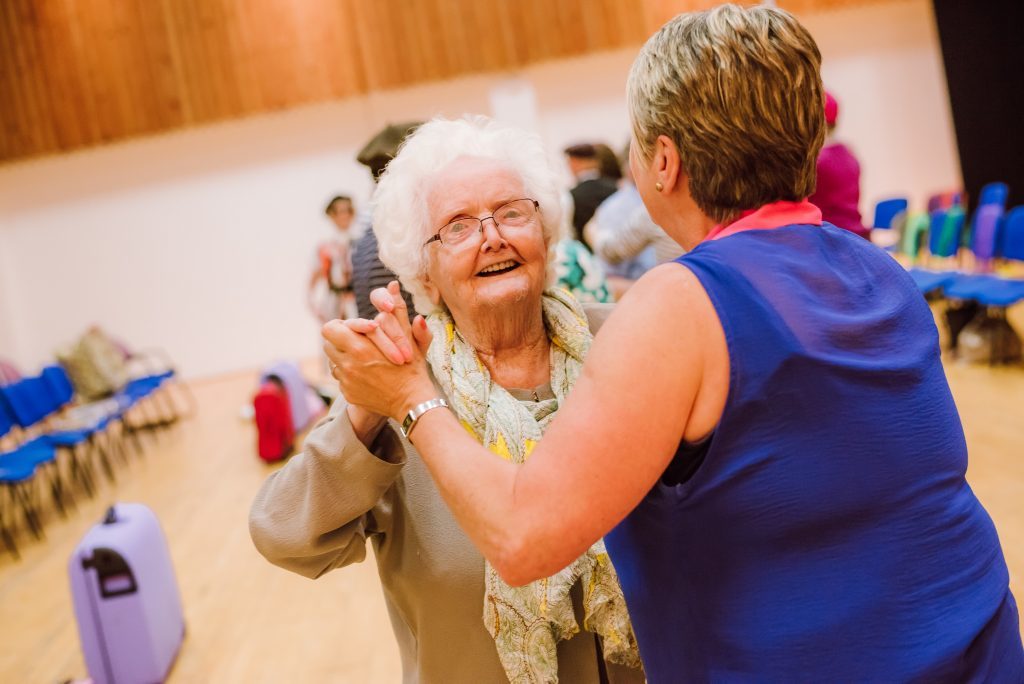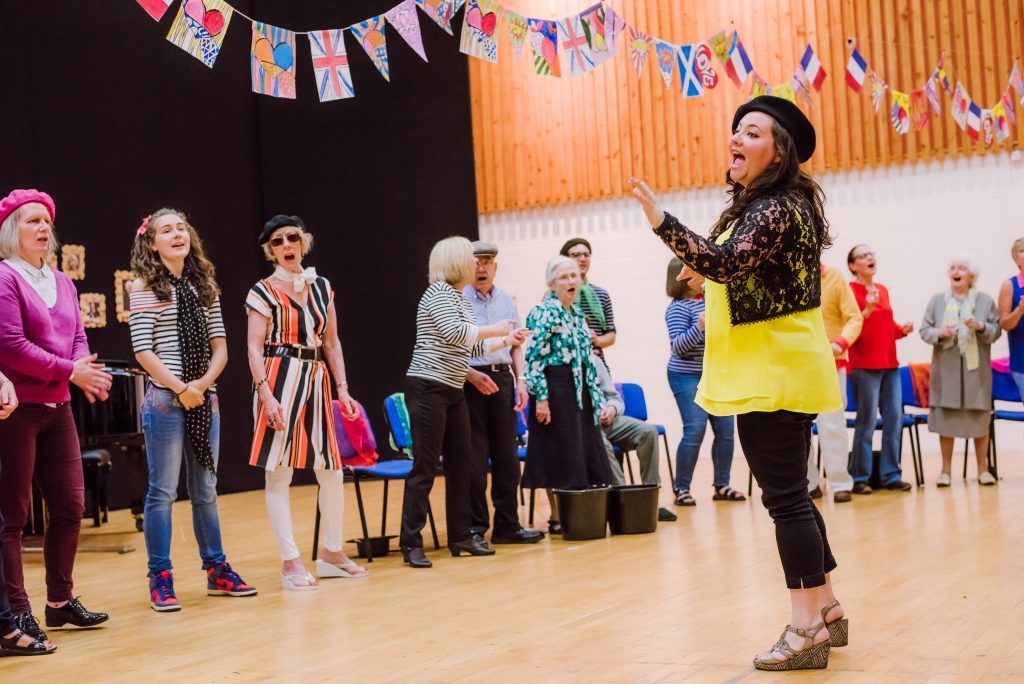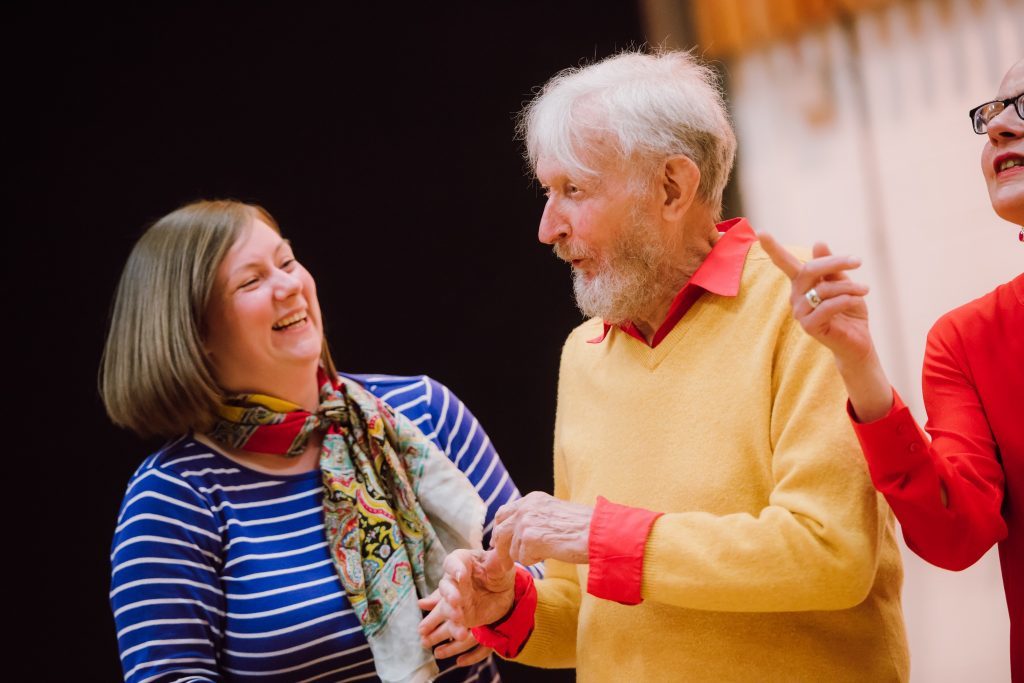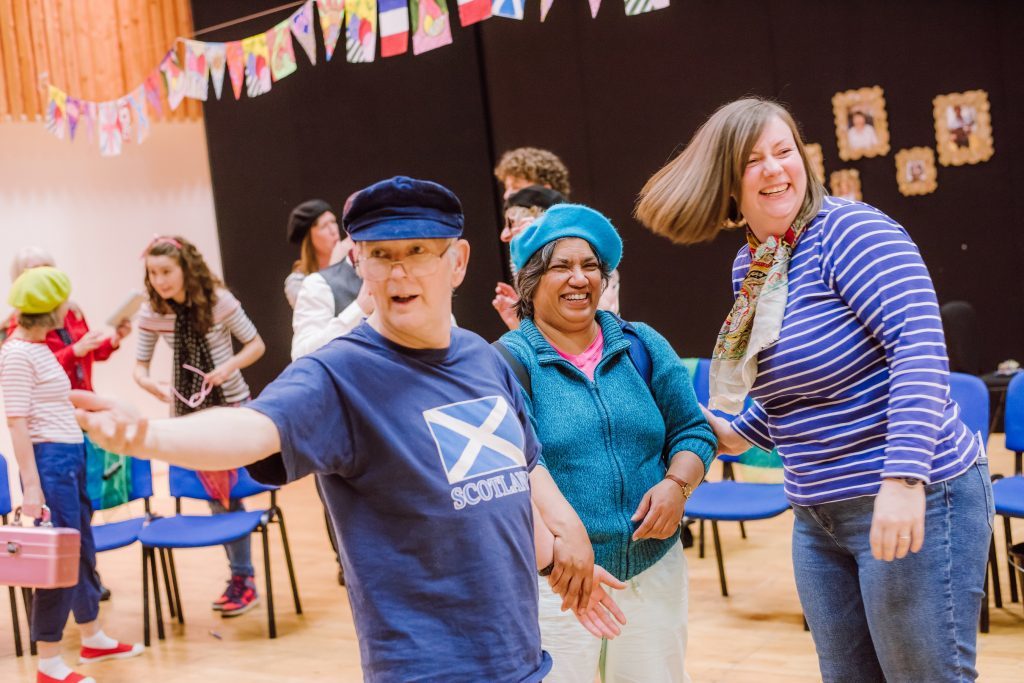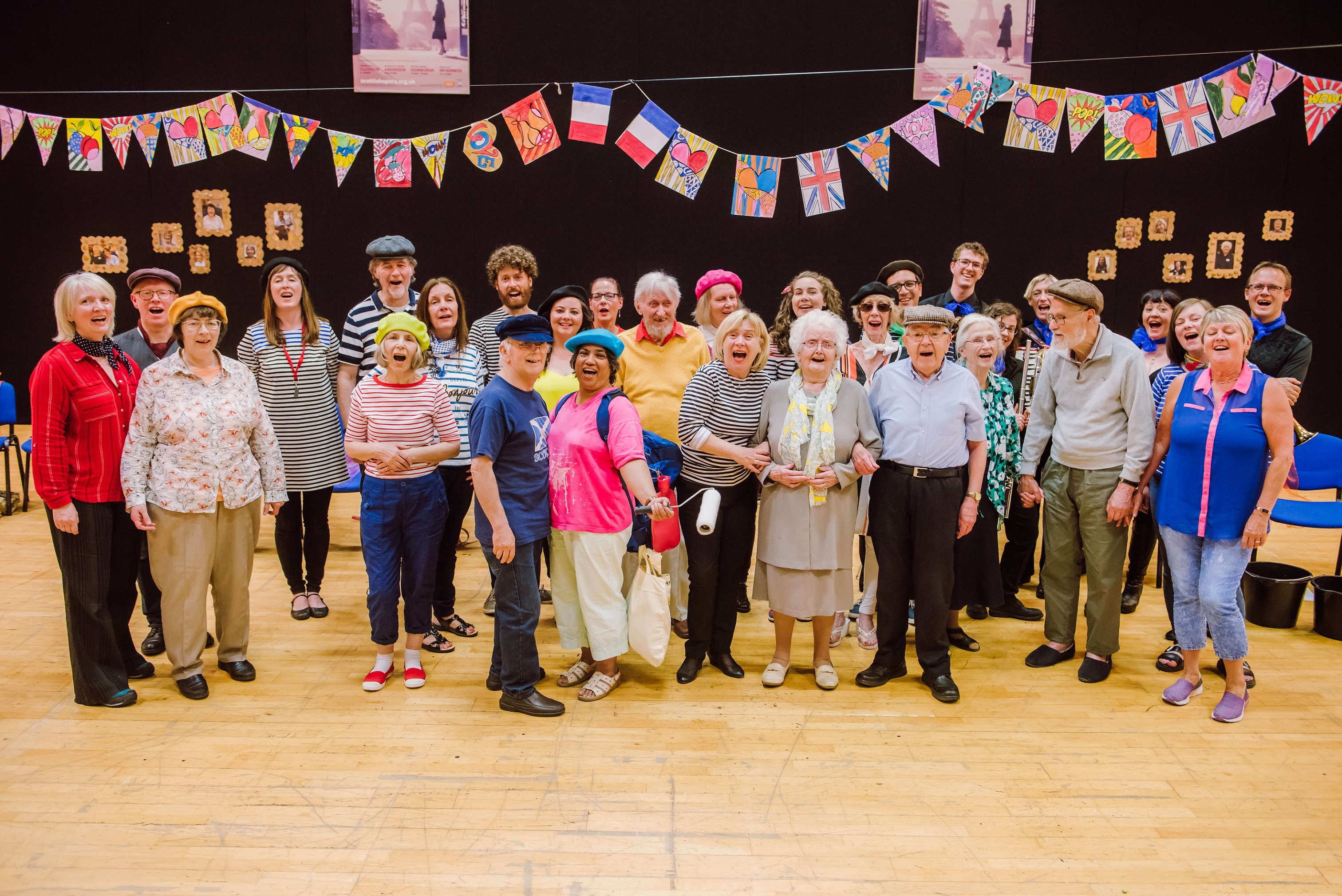
SCOTTISH OPERA’S Education and Outreach Department has run the Memory Spinners programme in Glasgow since 2010. The project uses music, storytelling, movement and the visual arts to help people with dementia and their carers relax and get creative.
The successful programme also recently launched in Edinburgh
The Sunday Post chatted with Memory Spinners Glasgow group director Deborah McArthur to find out about the musical sessions, and why all the participants ‘always leave smiling.’
Deborah told us that the relaxed group sessions start at 1pm with a spread of sandwiches, cakes tea and juice for everyone to enjoy.
She said: “It’s really important for the group to have that time so sit down together and talk.”
Deborah said these informal blethers are a great way for people who are living with Dementia, or who are caring for those who are, to share their experiences and how they’ve been affected, and the little things that help them to the live well.
She added: “After all, food always brings people together.”
The sessions also include fun physical and vocal warm ups, as well as a wee bit of choreography.
Deborah said that one of the most important things about the project is that “everyone is equal”.
“We wouldn’t ask the participants to do anything we wouldn’t do. The workshop leaders and volunteers also take part in all the activities. Everyone sings along, everyone dances. We all get involved.
“A lot of people in the room might used to having carer/client roles, but while they’re in the room everyone is learning the same thing at the same time and those roles are taken away for a while.”
Deborah added: “The group and the atmosphere is amazing – I think it’s really important for people to be attending these kind of groups and to meet people who might be going through similar things.
“Everybody always leaves smiling.”
Newbie crooners needn’t worry, as Deborah says no singing experience is required for people who’d like to join. The group has a big variety of participants, all of whom have a passion for music in common.
The workshops have used a wide range of well-known music, from grooving to Elvis to joining in with Scottish classics. Deborah told us that the current sessions feature ‘This Little Light of Mine’, which is a group favourite.
At the end of the programme, the group have a ‘sharing day’, where an audience of around 80 friends and family members come along to see what the class have been working on.
It’s a relaxed, supportive environment where the participants can have a little fun and share some new skills and their passion with their loved ones.
Each time, a different Scottish Opera show is used as inspiration, so for Scottish Opera’s current show, La bohème, the theme was artists in Paris.
The sharing day takes place in a Scottish Opera rehearsal space, which benefits from a lighting rig and black curtain.
After the performance (the June show is pictured throughout article) participants and audience can have a chat over a cuppa and cake.
During the show, a TV screen with lyrics will be on display for the participants, and there’ll be visual prompts and cues. The show is accompanied by some wonderful live musicians and has no dialogue, so if something does go wrong, the audience may be oblivious.
The youngest member of the group is in their early fifties, while their oldest members are in their nineties. The programme is tailored to different levels of mobility and the building is accessible for wheelchairs.
Deborah told us that many of the people who take part have been attending long-term.
“We’ve had some people who came along with their loved ones. After the loved ones sadly passed away, they continued to come along and volunteer with the project because they have seen the great work it does and how happy it makes participants.”
Deborah also told us of a success story of someone who attended the workshops with their Dad, who had completely stopped writing.
“During the sessions he began who engage, and then he went and surprised everyone by picking up a pen and writing his name.”
For more on the project, watch below:
READ MORE FROM THE SUNDAY POST
Dementia friendly events in Scotland
Watch: PC hits a high note at Alzheimer Scotland event for Dementia Awareness Week
Alzheimer Scotland Memory Walks: Step by step, we’re making a difference

Enjoy the convenience of having The Sunday Post delivered as a digital ePaper straight to your smartphone, tablet or computer.
Subscribe for only £5.49 a month and enjoy all the benefits of the printed paper as a digital replica.
Subscribe